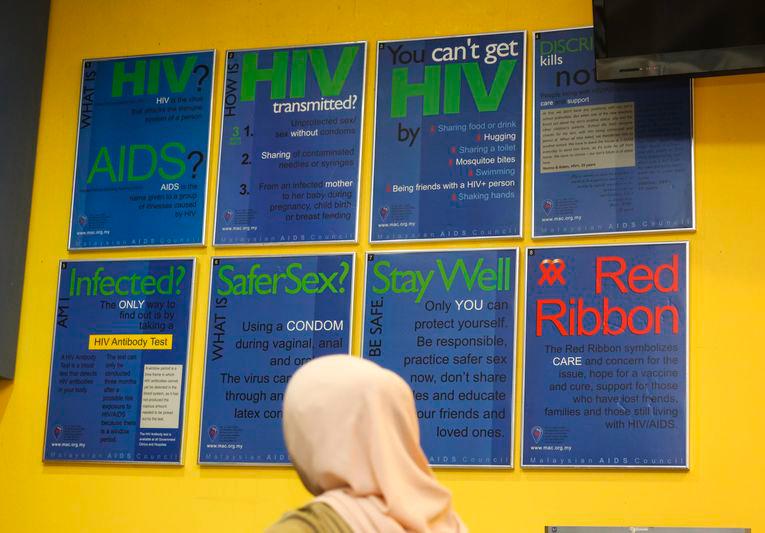PETALING JAYA: Malaysia continues to record a decline in overall HIV cases, but health officials warn that young people remain the most affected group, with more than half of new infections this year involving those under 30.
A young Malaysian, who asked to remain anonymous, told theSun how persistent health problems led him to discover he was living with HIV.
“I had constant diarrhoea and fatigue for months. At first, I thought it was food poisoning, but when the symptoms didn’t go away, I bought a self-test kit online. The result was positive,” he said.
Initially in denial, he eventually sought treatment at a government clinic in Shah Alam. While the first consultation left him feeling uneasy, he said healthcare staff still offered the support he needed.
“I was totally crushed, but I was encouraged to stay positive and start treatment. Having a genuine support system is crucial,” he added.
He said the diagnosis left him puzzled as he had not been sexually active in recent years, nor was he an active drug user.
Reflecting on his past, he later realised that a traumatic childhood experience he had never spoken about might have been the source of his infection.
“Then it clicked. I was a victim of rape when I was about six or seven. I never told a single living soul because I didn’t even know it was rape.
“That was the only sexual encounter I ever had, and it was non-consensual. I didn’t even know what it was.”
Now on antiretroviral therapy, he describes his life as “mostly normal”, though he still experiences side effects such as dizziness.
He said he remains grateful for the accessibility of treatment in Malaysia, where public healthcare provides specialist consultations and medication at highly subsidised rates.
theSun also reached out to the Health Ministry to learn more about recent trends.
According to the ministry’s HIV/Sexually Transmitted Infection (STI)/Hepatitis C Sector of the Disease Control Division, Malaysia recorded 1,377 new HIV cases between January and June 2025, down from 1,693 in the same period last year – a decline of 18.7%.
However, youths remain disproportionately affected, with more than half the cases (54.2%) involving individuals aged 15 to 30.
Sexual transmission continues to be the overwhelming mode of infection. Of youth cases reported in the first half of this year, 98.3% (733 cases) were transmitted through sexual contact, compared with fewer than 1% (seven cases) linked to drug injection.
The ministry said early screening and treatment remain essential to curb transmission.
“Testing is available at government clinics for as low as RM1, with additional access through private clinics and HIV self-test kits launched via the TestNow portal in 2023.
“We have also expanded services such as Differentiated HIV Services for Key Populations in 33 clinics, working with NGOs to improve outreach.”
Awareness efforts have also been scaled up through partnerships with NGOs and campaigns like Prostar 2.0, which aims to strengthen youth resilience against HIV and other sexually transmitted infections.
Universiti Kebangsaan Malaysia public health specialist Prof Dr Sharifa Ezat Wan Puteh said young people remain particularly vulnerable due to their social environment.
“Exposure often begins in school, boarding institutions and through social mixing. The influence of the internet, peer experimentation and risky sexual behaviour are all contributing factors,” she said.
She added that awareness remains weak, particularly among young men who engage in same sex.
“Students should be made aware of the risks of HIV and other sexually transmitted diseases. They should also be offered non-obligatory screenings when they leave school or enter university.
“Those identified as high-risk should have access to PrEP (pre-exposure prophylaxis) to prevent full-blown infection,” she said.
Sharifa also urged teachers and boarding school staff to be better informed about the potential of sexual activity and its risks, adding that prevention strategies should be openly communicated.









